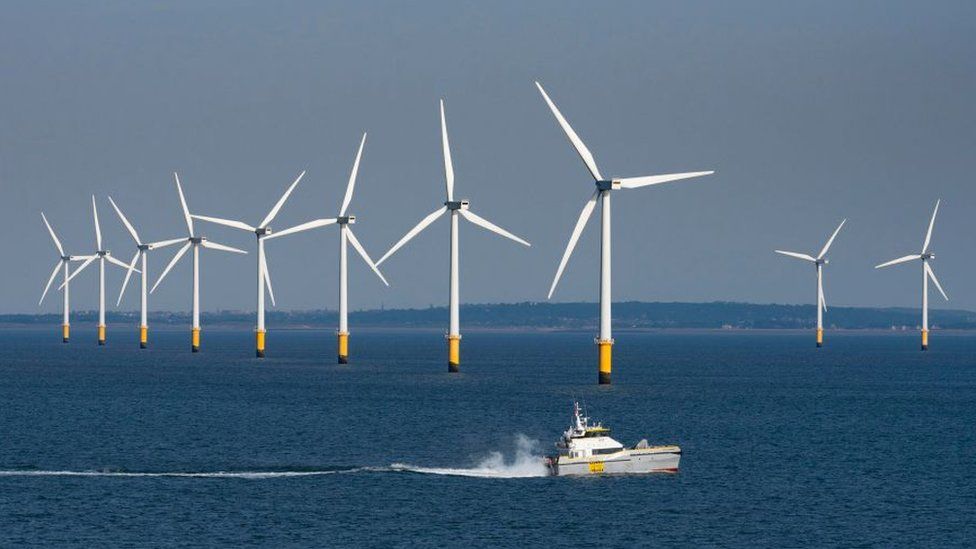24 minutes ago
About sharing
No new offshore wind projects have been bought by developers at a key government auction, dealing a blow to the UK’s renewable power strategy.
Results showed no bids for new offshore wind farms, but there were new solar, tidal and onshore wind projects.
Firms had said the price set for electricity generated was too low to make offshore wind projects viable.
The government said a “global rise” in inflation impacting supply chains had “presented challenges for projects”.
It said while offshore and floating offshore wind projects did not feature on the agreed deals list, the outcome was “in line with similar results in countries including Germany and Spain”.
The Department for Energy Security and Net Zero said “significant numbers” of solar power, onshore wind, tidal energy schemes, and for the first time, geothermal projects, which use heat from the ground to generate power, had been awarded funding.
But renewable groups have said the alternative renewable projects cannot do the heavy lifting in generating the power that offshore wind does.
The technology has been described as a the “jewel in the UK’s renewable energy crown”, but firms have been hit by higher costs for building offshore farms, with materials such as steel and labour being more expensive.
The UK is a world leader in offshore wind and home to the world’s largest four farms, supporting tens of thousands of jobs.
Its annual auction invites companies to bid to develop renewable energy projects and contracts to supply the UK grid with electricity. It was hoped offshore wind in the latest round could have helped generate five gigawatts of power, enough to run five million homes.
But wind farm builders had warned for months that the government was not taking into account how much running costs had soared.
Simon Virley, vice chair and head of energy and natural resources at consultancy firm KPMG, said the lack of new offshore wind projects in the latest auction was a “major setback at a critical time when we should be looking to accelerate renewables”.
He said it was the first time since such schemes were launched in 2015 that there had been no new offshore projects announced.
“This outcome reflects the growing inflationary and supply chain pressures affecting the offshore wind sector in recent years, which is making it harder to deliver these projects at the strike prices and other auction parameters set by the government,” he added.
Ed Miliband, Labour’s shadow energy security and net zero secretary, said the result of the auction was an “absolute disaster for Britain”, but should have been avoidable. He argued the government had been warned by the industry that “unless they adjusted the auction price this would happen”.
“They [the government] should be hanging their heads in shame,” he told the BBC’s Today programme.
